By Craig Nudelman
“To forget (the Holocaust) would be not only dangerous but offensive; to forget the dead would be akin to killing them a second time.” — Elie Wiesel.
On Thursday 28 April at Pinelands Jewish Cemetery No 2, the annual Yom HaShoah veHagvurah ceremony was held, commemorating the 6 million Jews who perished during the Holocaust at the hands of the Nazis and their collaborators. Over 600 guests attended, including first, second and third-generation survivors; members of our community and religious leaders; fellow interfaith and intercommunity leaders; senior officials of the SA armed forces; and, government officials and diplomats.
Setting the tone for the ceremony, Ariella Barnett sang a moving rendition of Vi Ahin Zol Ich Geyn, the lyrics of which are as follows: Where shall I go, who can answer me? Where shall I go, since all the doors are closed — an appropriate song that speaks of the plight of the Jewish people for centuries, and the millions of refugees around the world searching for a home of their own. Together with the Herzlia Vocal Ensemble’s performance of Eli Eli and Herzlia learner Simon Karon’s guitar rendition of Papirosen, these poignant songs of hope and despair ensured that the people gathered were certain never to forget the horrors of the Holocaust.
Isaac Habib wrote and read his poem in Ladino, The Final Episode. The imagery describes the forced removal of the Jewish community in Rhodes — once so peaceful and calm — to the horrors of Auschwitz-Birkenau.
Dr Veronica Belling read A Jewish Child by Chana Kheytin, a poem written in the Shavli ghetto in Lithuania in 1943, that details actions parents were forced to take to save their children from their untimely deaths. A parent’s sacrifice to save their children was echoed by second-generation survivor Michal Roozendal, whose parents left him outside a police station so that he would be spared from Nazi persecution, and who was later placed in a Dutch orphanage. This while his parents hid in a small room concealed behind a cupboard for three years. Too emotional to read his message himself, he asked Gwynne Robins to read it. He spoke too of the terrible fighting in Ukraine and the hatred that it has exposed. His simple message, “we do not need tanks, but rather we need to help people in need”.
Deputy Ambassador of Israel, Hila Rose Fridman, told of her grandfather who was born in Poland. His Aryan appearance allowed him to get a fake Polish identity card, and he lived in hiding for the duration of the German occupation of Poland. At the end of World War II, he was reunited with his mother and little brother in Germany and left for what would become the State of Israel. Ms Rose Fridman, as a third-generation Holocaust survivor, was able to hear these stories directly from her grandfather and will continue to relay them, as hard as they are to tell, to her children and generations to come.
After the placing of pebbles at the memorial statues, where people were given the opportunity to write messages pertinent to never forgetting, survivors and their children and grandchildren kindled the lights, signifying that the memory of their loved ones will never fade. This year the Cape SAJBD and the Cape Town Holocaust and Genocide Centre began a new initiative to include third-generation survivors in the ceremony. They placed cut-out butterflies by the memorial, while members of the Herzlia SLC read Pavel Friedman’s poem, I never saw another butterfly. This was especially apt a day after South Africans celebrated Freedom Day, where we celebrate the adoption of a new constitutional dispensation based on equality, human dignity and freedom for all — rights we are reminded never to take for granted.
We must also remember to commemorate those who fought against Nazi and antisemitic oppression during the Holocaust. The stirring words of the Partisan Song — that we will continue to fight for our survival — were sung by the Cape Town Hebrew Congregation’s choir and Cantor Choni Goldman. We also had an address by Chief Rabbi Dr Warren Goldstein who spoke of heroism, expressed not only by guns and bullets but also by faith and determination. He stated that many Jews’ unbroken belief in Hashem in the face of the Holocaust was a sign of immense courage.
The laying of the wreaths by Jewish ex-servicemen and members of the South African armed forces further celebrated this fighting spirit; powerful reminders of the sacrifices made by Jewish and non-Jewish South Africans who fought during the Second World War.
As with all ceremonies where we remember those who are no longer with us, Rabbi Greg Alexander recited the communal Kaddish. The symbolism of saying Kaddish, where we never mention death or dying but rather state our dedication to the greatness of G-d, give all who have lost a loved one a community to assist us in our mourning.
With the moving songs and poems, the emotional accounts of survivors, and the memorialisation of the victims and heroes of the Holocaust, we thank all those who participated and attended to help make this event successful. As said by the Cape SAJBD’s Chairperson, Tzvi Brivik, “May we never see another tragedy like the Holocaust taking place. We will always remember, so the world will never forget.”


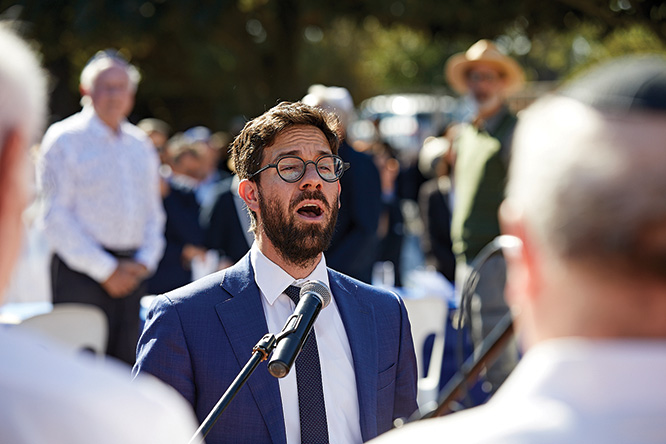
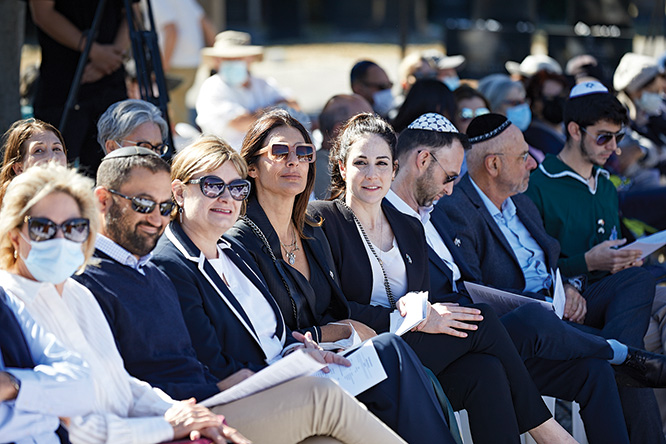
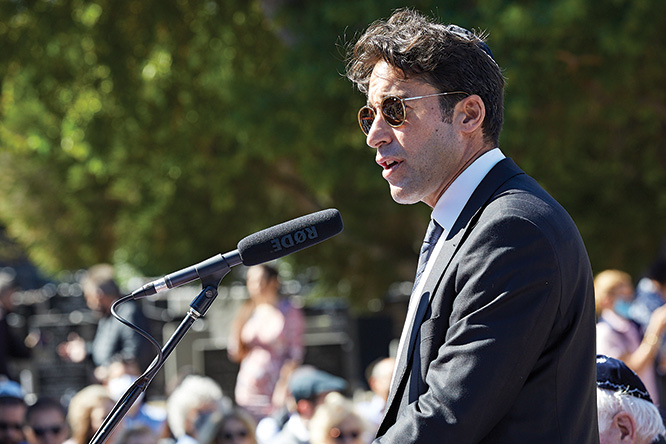
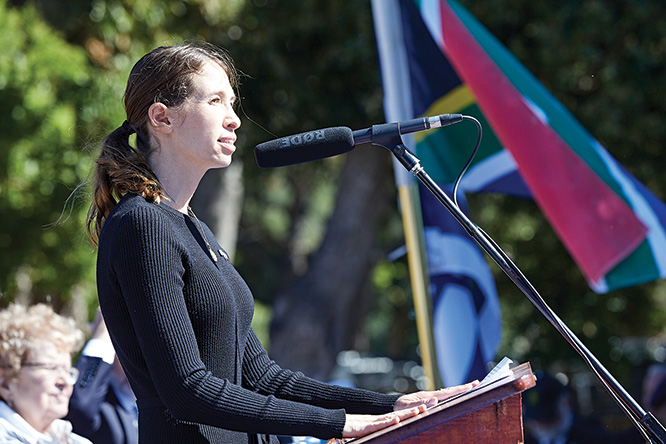
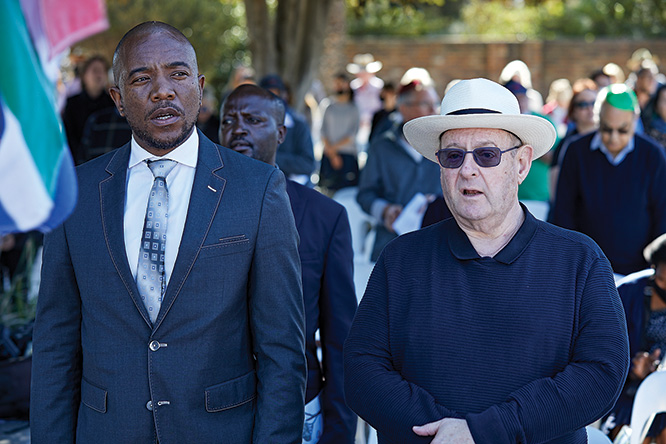
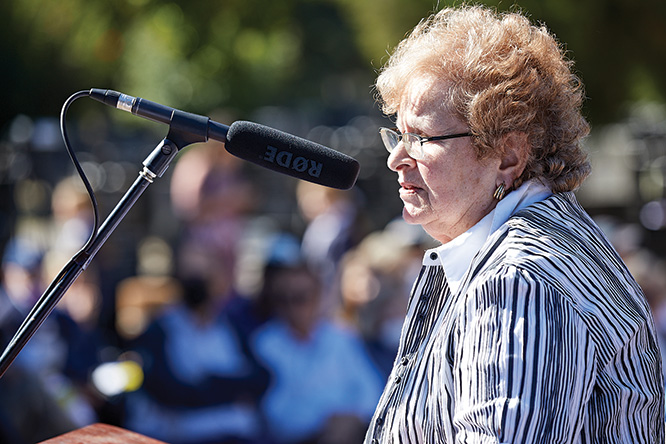

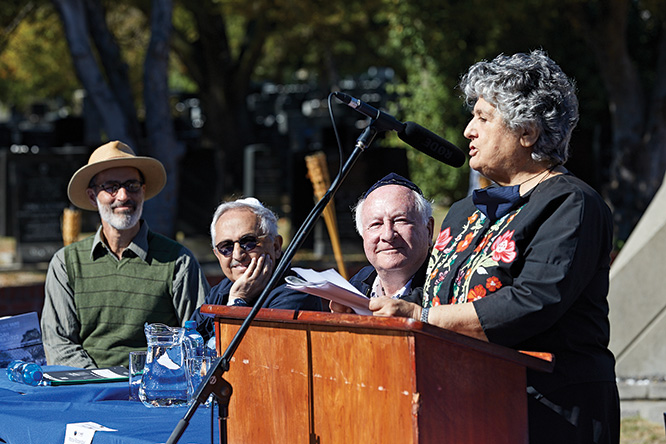
Cape SA Jewish Board of Deputies website: www.capesajbd.org, Instagram, and Facebook page.
• Published in the PDF edition of the June 2022 issue – Click here to read it.
• To advertise in the Cape Jewish Chronicle and on this website – contact us on 021 464 6700 ext. 104 or email advertising@ctjc.co.za. For more information and advertising rate card click here.
• Sign up for our newsletter and never miss another issue.
• Please support the Cape Jewish Chronicle with a voluntary Subscription for 2022. For payment info click here.
• Visit our Portal to the Jewish Community to see a list of all the Jewish organisations in Cape Town with links to their websites.
Follow the Chronicle: Facebook | Instagram | Twitter | LinkedIn










